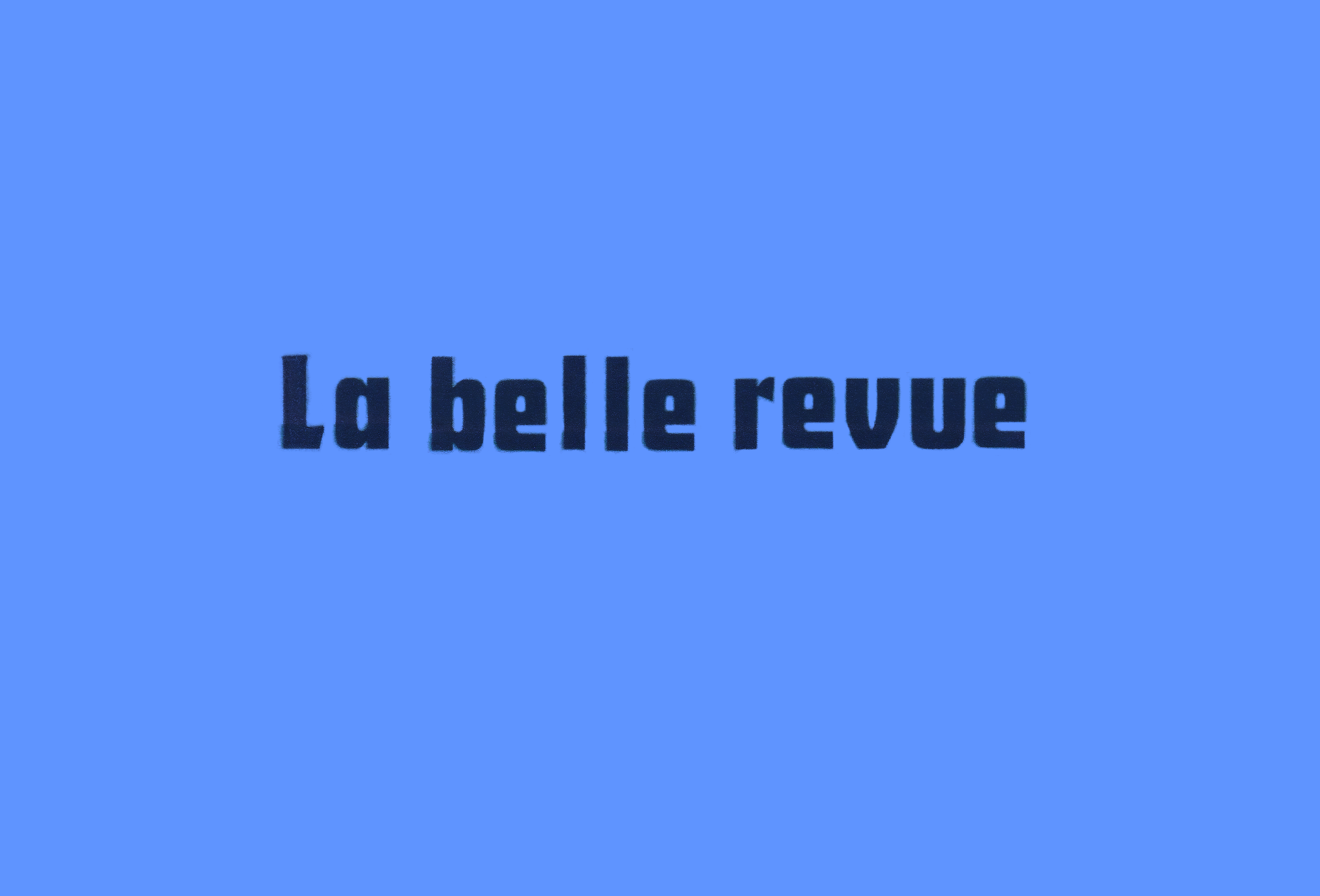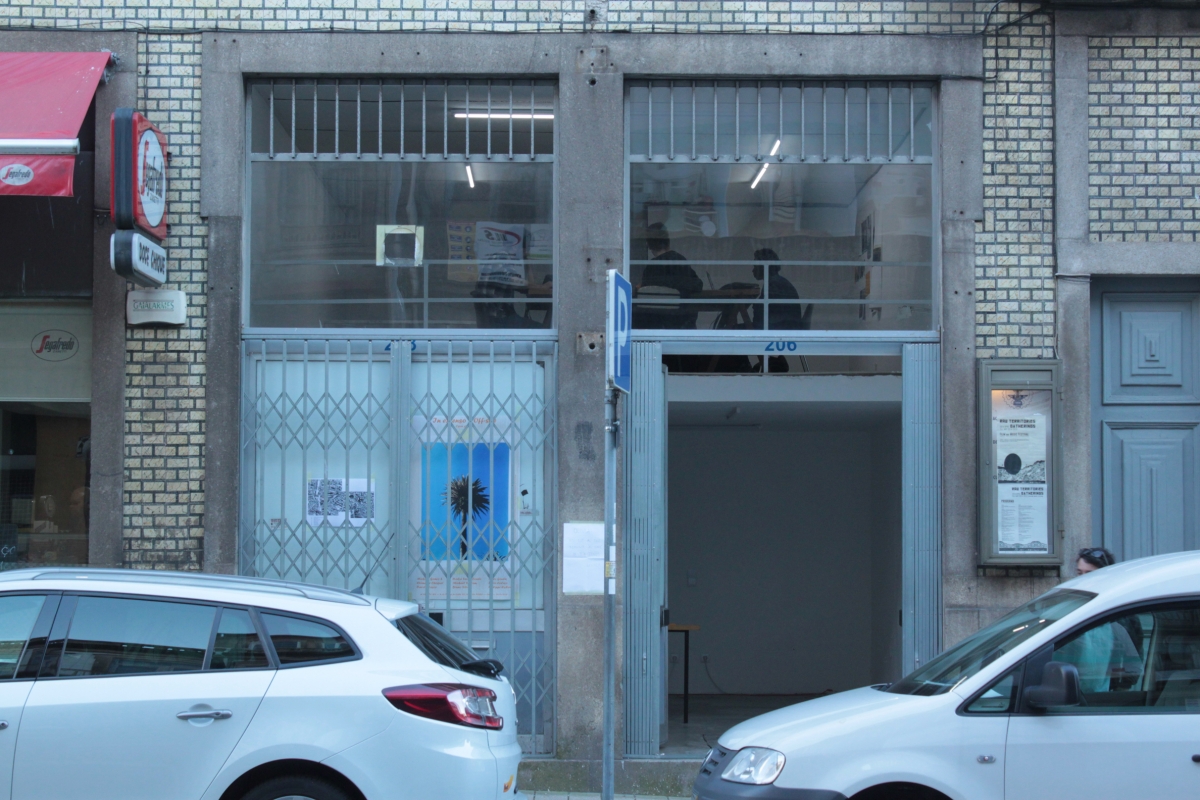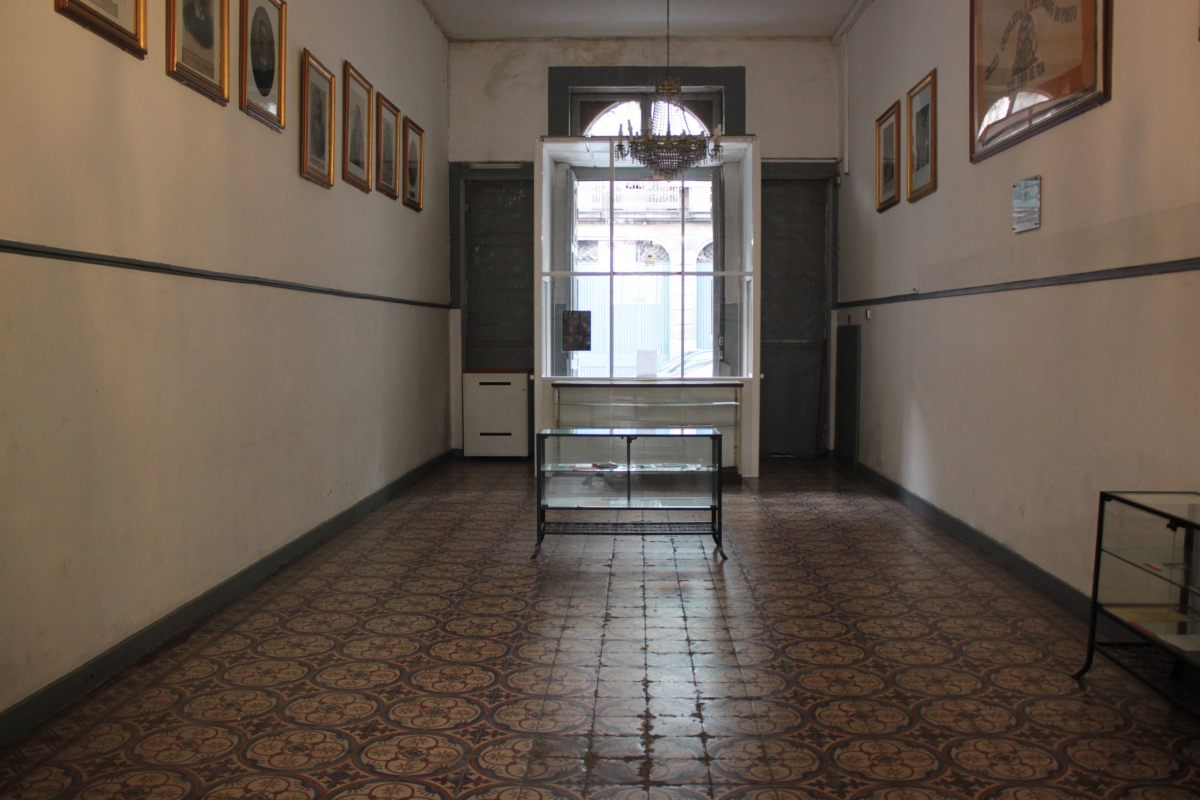La belle revue—» Could you describe in what context Rua do Sol appeared and why, according to the situation of Porto art scene, did you decide to get involved in that space?
Luisa Abreu/Rua do Sol—» Artists gathering as a group is something that has been happening in Porto for a while, creating different spaces with very different contexts, purposes and dynamics.
For a long period in Porto, it was crucial that artists adapted to a cultural blackout situation, a time when there were no support for any cultural activities. Adapting yes, but not accepting, fighting back with diverse independent art spaces, driving several artists to be cultural organizers, running spaces, making exhibitions and getting involved in multiple projects that were vital to uphold an interstitial living city.
These kinds of spaces were and are disseminated all over the city and they are capable of unlevel cultural options as well of unlevel cultural locations.
Rua do Sol 172 have started with a very expanded idea of what it could become. It began with the common aim of a group of people urging to have a work space together along with a necessity of shedding light on more artistic propositions. Naturally, there were also economic reasons involved when deciding to open a space with this kind of nature.
This space was located in Rua do Sol 172 (meaning Sun’s Street 172), with no sun whatsoever as it was a very narrow and small street. The space was divided in two major areas − facing the street, where you could feel the neighborhood entering from the big windows − and was an informal open area for all kind of artistic desires; the other one, in the back, was the open space studio. At that time, Rua do Sol 172 was not already a collective, but also because it was not just a studio for them to develop their own personal work, they inevitably started to engage in some different way.
L.B.R—» How do you pick up artists for exhibitions and is there a specific idea on what kind of art you desire to show? You seem to be open to many approach and not strictly visual art?
L.A./R.d.S.—» Now that we moved to another location, the way we are picking up artists, organizing exhibitions and programming has also changed.
At this moment Rua do Sol 172 is located in the "Círculo Católico de Operários do Porto" (Catholic Circle of Workers in Porto), aka CCOP, founded in 1898. This is a place where a lot of different things are happening, such as table tennis competitions, acting workshop with a theatre group called "Confederação", a senior chorus, diverse social actions, Rua do Sol´s collective studio and gallery, and so on. As well as being a space with several dynamics, the structure of the building, in contrast with the former Rua do Sol, is also divided in specific areas, allowing us to program differently.
At present time, we are able to separate cinema cycles from exhibitions or concerts from artists’ talks. We can actually move to different sites in the same building, as well as having multiple situations occurring at the same time. In what concerns having a preconceived idea on a specific kind of art we prefer to program, we try to be as wide as we can, and there is nothing regarding mediums, forms, materials, subjects, ideas or anything else that we don´t want to show. Diversity is very important, so are divergent opinions. Plus, standing as an independent art space that has no strings attached to no one or anything, having no commercial purposes or a distinct goal of "art for all", we are able to program unrestrictedly.
Regarding this, anyone can send us a proposal of any kind of artistic preference. Later on, Rua do Sol as a group will discuss about that proposal. Certainly because we are a group formed of different individuals, there are different opinions and preferences, but the idea is to discuss and also to make proposals ourselves. This is possibly what makes programing more distinct.
L.B.R—» What would be the specificity of the art scene in Porto compared to Lisbon in Portugal? How do you see yourself compared to Lisbon?
L.A./R.d.S.—» I never lived in Lisbon, so the opinion I have about this subject is purely circumstantial. Despite that fact, I believe that there is a huge gap between Porto and Lisbon, mainly because there is an enormous unfamiliarity of each other and this is probably the reason why the reality of those two cities are so different. We are not that apart and still there is so little interaction between artists based in the capital city and Porto. Nevertheless, I think it is a curious situation, considering the small-scale of the "Portuguese art scene".
Certainly that Lisbon has more galleries, more institutional museums and indubitably, more media attention. But they also have other spaces in which I am very interested about. Some of them are also run by artists reflecting the cultural dynamics of Lisbon. But I don't intent to compare Porto to Lisbon, there are a lot of differences and certainly they have different cultural and political backgrounds.
L.B.R—» Do you feel supported by other institutions in Porto, may they be political or contemporary art oriented?
L.A./R.d.S.—» We do not get any kind of support from institutions, whether political or contemporary art oriented. It just doesn’t happen and it can be because of our amorphous behavior. We sometimes connect to other projects in Porto, where we are invited as a collective to collaborate in different ways, it happened in Biennial da Maia last year and it is happening this year with a project called “Ao Monte” with Maus Hábitos and Cooperativa Árvore.
L.B.R—» How, as an artist, do you organize your time between your personal work and your implication with Rua do Sol? How does it feel to be an artist in a city like Porto today?
L.A./R.d.S.—» I believe that being an artist today implies that you unfold to a lot of different things at the same time. And it’s not just being an artist and it’s not just being in a collective that runs a space. The organization has to be even bigger than that, because all of us need to do some other things to keep the bills paid. But, concerning the artist/Rua do Sol situation, we do not have an organized schedule for one or the other. We meet when we feel it is necessary. Even though all of us have different roles and responsibilities in Rua do Sol, it’s not always the same role, but when a situation comes up, someone (or a couple) usually is in charge of that specific matter. That helps us not to lose track on things that have to be taken care of.
Our involvement as “programmers”, responsible for an exhibition space is not different from our artistic practice or from our understanding of what it is to be an artist in Porto today. Porto is a city with different layers regarding cultural activities. We can find the most institutionalized art programs as well as the most independent art apparitions. Also, it is always possible to discover new things in Porto, because it is much bigger than the city center. This recognition gives a hint of a social and political background that we should not forget.











